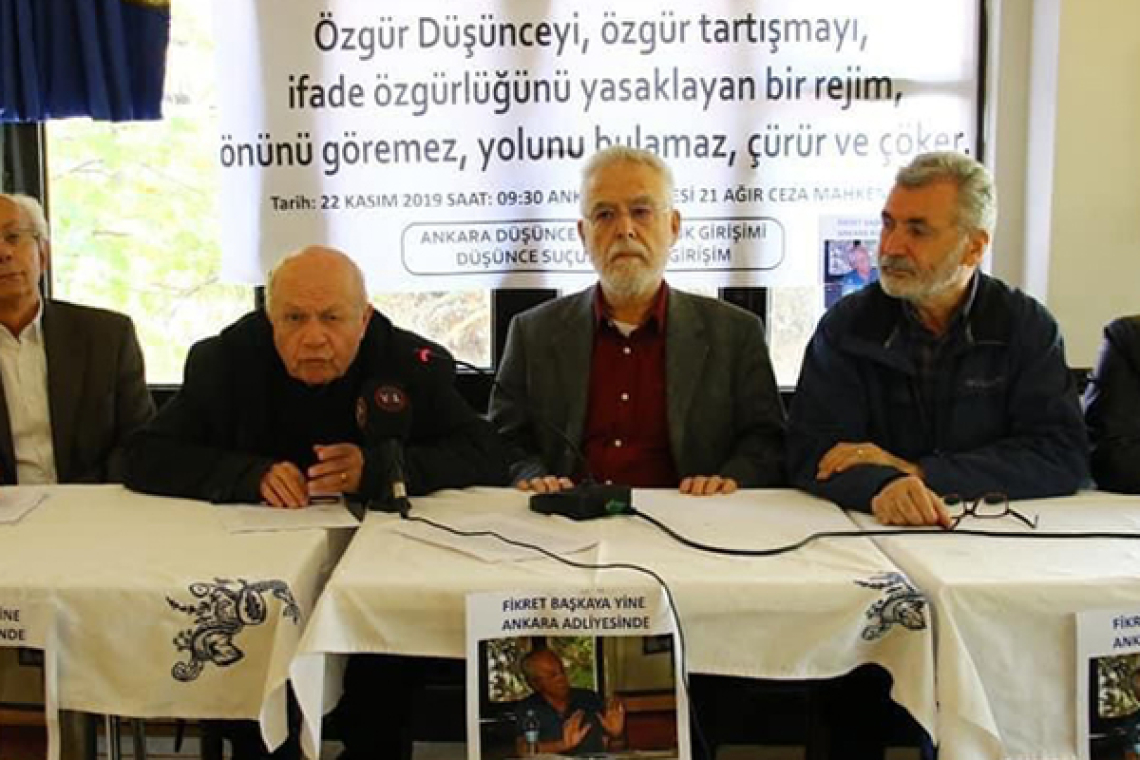Şükriye Ercan, the former co-chair of the Peoples' Democratic Party (HDP) in Eskişehir, is under investigation for alleged "terrorist propaganda," a claim tied to a photograph of two prominent figures of Turkey’s revolutionary left displayed in the meeting hall of an alumni group. The investigation centers around a photo displayed at the meeting hall of Mülkiyeliler Birliği - an association of Ankara University Political Science alumni -- showing Mahir Çayan and Hüseyin Cevahir. The prosecution has classified the photo as "terrorist propaganda". Çayan and Cevahir, both former students at Ankara University's Faculty of Political Sciences, are considered to be founders and members of the People's Liberation Party-Front of Turkey (THKP-C), labeled as a terrorist organization by the Turkish government. The investigation also extends to Ercan's attendance at a memorial for Deniz Gezmiş at the Karşıyaka Cemetery, and her social media posts about Hüseyin İnan and Yusuf Aslan, which were assessed as "propaganda for the People's Liberation Army of Turkey (THKO)", another group regarded as a terrorist organization by the Turkish government. Furthermore, Ercan faced allegations of propagating for the Kurdistan Workers' Party/ Kurdistan Communities Union (PKK/KCK), based on her participation in a 2013 program on İMC TV, which was later shut down by a statutory decree, and her social media posts about the 2018 Olive Branch Operation1. In response to these allegations, Ercan defended herself, stating, "I am a politician and also a human rights advocate. I will naturally participate in declarations. They wanted me to pick a favorite organization from within the organization. There is no organization. Mahir Çayan and Hüseyin Cevahir were Mülkiye students. Their photos are hung for this reason. They are stubbornly trying to call revolutionaries terrorists. In 2013, I appeared on İMC TV as a politician to discuss the agenda. For İMC TV, they said, 'Why did you go to the broadcasting organ of the terrorist organization?' They don't want to leave room in democratic politics"1. Critics of the investigation have raised concerns about the criminalization of dissent in Turkey. Şahap Arpacı argued that this process is an attempt to neutralize the influence of opposition politics within a limited sphere and criminalize it under the guise of the Turkish Penal Code and the Anti-Terrorism Law. He further noted that any actions or meetings of a legal party, union, association, or foundation calling for "peace and brotherhood" are being labeled as "PKK/KCK propaganda"1. Some see this investigation as part of a broader trend of operational politics ahead of the 14/28 May elections, with a rapid escalation of actions perceived as contributing to the anti-terrorism agenda. Files are quickly being moved from under the counter to interrogation rooms and courtrooms, sparking further concerns about the future of free speech in Turkey.
News
Medya ve Hukuk Çalışmaları Derneği (MLSA) haber alma hakkı, ifade özgürlüğü ve basın özgürlüğü alanlarında faaliyet yürüten bir sivil toplum kuruluşudur. Derneğimiz başta gazeteciler olmak üzere mesleki faaliyetleri sebebiyle yargılanan kişilere hukuki destek vermektedir.



